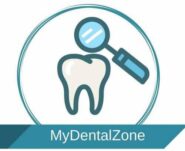ABOUT WISDOM TEETH
Wisdom teeth, as commonly called, are actually the 3rd molars of the human jaw. These teeth usually erupts between 17-25 , sometimes later or sometimes never. There are times that these teeth becomes impacted because there is not enough space in the jaw. They may erupt tilted or sideways. Impacted teeth use tooth decay, gums disease or lead to teeth movement that may cause changes in the position of the other correctly positioned teeth. And we do not like this to happen of course. If your impacted teethcare causing you pain, not positioned correctly or you merely suspect that they are impacted, it best that you visit your dentist for proper diagnosis. You dentists will be glad to show you what proper procedure should be done.
Click Here To Request Appointment
WHAT TO DO AFTER DENTAL SURGERY
For the first 24 hours
Your doctor will normally place a sterile gauze on the area of surgery or the wound, which you will need to bite down firmly.
Avoid excessive mouth rinsing, smoking, coughing, sneezing and other sucking actions.
It is important to drink large volume of fluids. Do not drink from a straw, because this may promote bleeding. Eat normal regular meals as soon as as possible after surgery (as recommended by your surgeon). Cold food such as ice cream or yogurt may be best to take for the first day.
Avoid strenuous activity for the first 24 hours after surgery (or as recommended by your surgeon).
When swelling occurs, apply cold compress, to ease swelling and pain, 20 minutes on 20 minutes off interval.
Take pain medications and antibiotics as directed by your surgeon.
It is okay to brush your teeth but avoid the area of surgery, to avoid dislodgement of the blood clot.
After 24 hours
You may use warm compress, using moist towel. Apply on your check opposite the wound area 20 minutes on 20 minutes off interval. This will help circulate blood to promote healing.
After surgery Expect difficulty in mouth opening, swallowing, pain and swelling on the surgical site.
Always ask your dentist if you there are things that bother you after surgery to get professional advice.
Rarely, mild bruising may occur in the area of surgery. This is a normal response in some persons and should not be a cause of alarm. It will normally disappear in 5-10 days.
If non absorbable stitches have been placed in the area of surgery, you will need to have them removed a week to 10 days.
SEDATION DENTISTRY
Your dentist may recommend the need of sedation to safely complete certain dental procedure. Sedation is administering a medication that induces the nervous system to calm.these medications are called sedatives. Sedation is usually done to children to avoid traumatic experience, to some uncooperative patients to simplify procedure and to some adults during multiple implant placements or for complicated surgery. Always ask professional advice from your dental surgeon regarding this matter.
DRY SOCKET
One of the most common complications of extraction is called Dry Socket. This condition which is caused by the dislodgement of the blood clot, is usually painful and affects healing. Blood clot plays an important role in the healing process. If blood clot is not in the socket the insides may be exposed to food debris and bacteria that disrupts healing process, and may result to longer period of healing. Therefore it is important pay attention to the post operative instructions of the dental surgeon after extraction. Avoid excessive mouth rinsing, smoking, coughing, sneezing and other sucking actions. Always ask your dentist if you there are things that bother you after extraction to get professional advise

